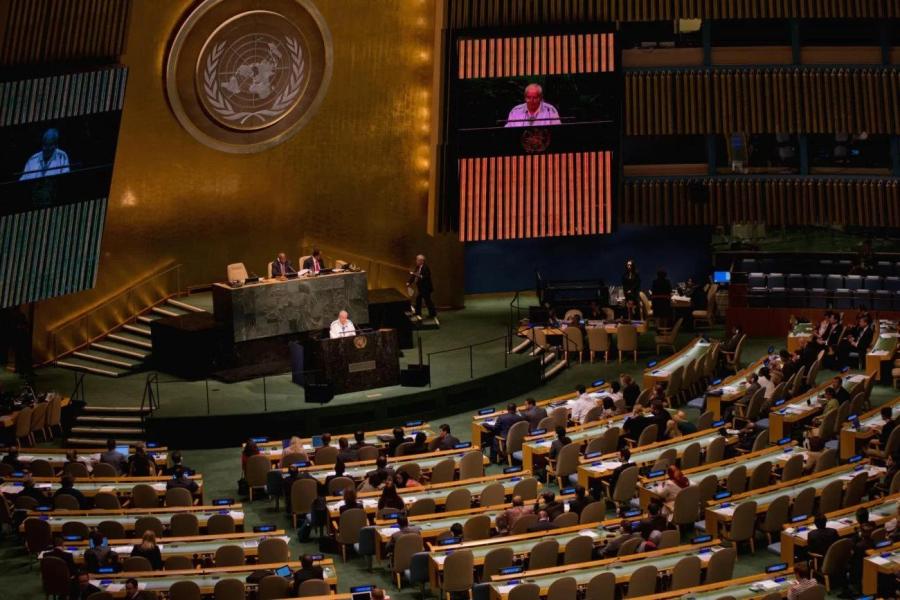
Chantelle Bacigalupo
On February 13, 2017, Minga Peru's Executive Director Eliana Elias and Cultural Survival's Deputy Executive Director Mark Camp together lead a discussion at Cultural Survival’s headquarters in Cambridge, MA to celebrate World Radio Day.
Minga Peru, founded by Eliana Elias in 1998, is a community effort that works to improve the lives of Indigenous river communities in the Peruvian Amazon. Their radio program, Bienvenida Salud (Welcome Health) is run by local people. “In 19 years, my voice hasn’t been once on the radio,” said Elias. They have received over 30,000 letters from the community over the years.
Bienvenida Salud is produced in Iquitos, the capital of the Amazon, and focuses on topics like HIV/AIDs, human rights, gender equality, and reproductive rights. The program, run by women, takes a sensorial approach using local sounds and familiar landscapes. Elias has coached the women to develop attention grabbing productions, “You have to start by making me salivate”.
Many of the women participating in Bienvenida Salud are taking a risk by using their voices, in a male dominated industry. However, their efforts to promote gender equality are making changes. Elias mentioned that they recently received a letter from a nine-year-old boy that read, “I want to be the kind of man that Bienvenida Salud talks about.”
Elias finds that the radio program plays a big role in decolonization. “Where there is colonizing, is where they don’t feel as free to speak,” she said. The radio program gives women a space to speak in their languages and voices to their people. She quoted the women of the community referring to decolonization saying, “If mestizas have pistols, we have canons.”
Mark Camp shared background information about the Indigenous community radio movement across the globe. 2017 marks the 10th anniversary of the United Nation Declaration on the Rights of Indigenous Peoples. Article 16 clearly states that Indigenous Peoples have the right to establish their own media in their own languages, and should have access to all forms of non-Indigenous media without discrimination, however this is not a reality in many places around the world. Indigenous radio broadcasters are risking their lives in places like Guatemala and Panama to exercise their freedom of expression.
The Guna people of Panama on World Radio Day commemorated the 92nd anniversary of the Guna Revolution by claiming their rights to freedom of expression through going "on air" without a formal broadcast license from the Panamanian authorities. Camp explained that although Indigenous organizations should be able to obtain broadcast licenses, the Panamanian bureaucratic system has denied them the licenses and require a two-year period before re-applying. “Risking severe reprimands from the government they are on-air now as I speak,” Camp said. “We know what Guatemala does, they raid these radio stations. But what will Panama do?” he asked. “There are dictatorships in Latin America that have fallen because of radio,” added Elias, reinforcing the power community radio holds in social change.



